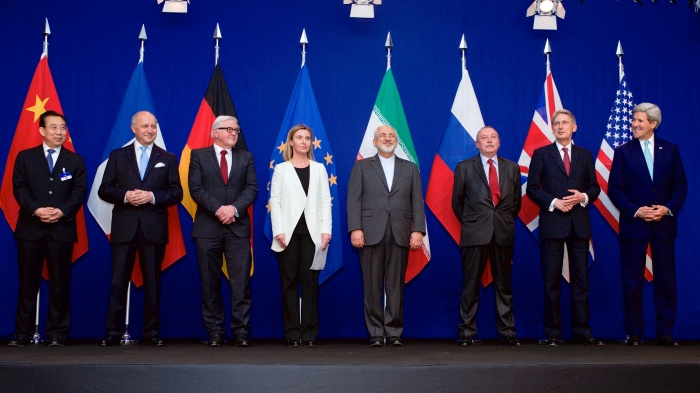Washington Is Not Cheating on the Nuclear Deal: Interview with Paul Pillar

July 14th marked the first anniversary of JCPOA; the Joint Comprehensive Plan of Action concluded between Iran and six world powers (United States, Russia, China, Germany, France and Britain). Based on the deal, Iran scaled down its nuclear activities in return for removal of the majority of sanctions it had endured for nearly a decade. Hassan Rouhani had come to presidency in June 2013 on a platform of ending the nuclear standoff which had aggravated since Mahmoud Ahmadinejad’s presidency started in 2005. Yet, one year later there is yet to be consensus on whether the deal achieved its goals. Inside Iran, there are signs of disillusionment with the nuclear deal as the post-JCPOA economic boom promised and expected has not been materialized. Iranian Diplomacy’s Zakiyeh Yazdanshenas has interviewed Paul Pillar, senior fellow in the Brookings Institute and former CIA officer, on JCPOA and its regional repercussions.
IRD: What do you generally think about JCPOA as it enters its second year?
PP: The agreement is as much in the interests of everyone concerned as it was a year ago. The record of Iranian compliance with its terms appears to be excellent, as confirmed by the international inspectors put in place by the agreement. This accord is an important step on behalf of nuclear nonproliferation, and there is no good reason to have second thoughts about it now.
IRD: Which sides do you think has gotten the better end? Do you see JCPOA as a win-win deal?
PP: It is a win-win deal. This assumes that the government of Iran is not seeking nuclear weapons, and the evidence is that this assumption is correct. Moreover, it is not in Iran's best interests to have nuclear weapons anyway.
IRD: Iran accuses US of cheating on the deal and not fulfilling its sanctions relief commitments. Do you think Iran is right?
PP: The U.S. administration is not cheating; it has been making an earnest effort to comply with the U.S. obligations under the agreement. It does not control, however, what the private sector does or what people who would like to kill the agreement and keep Iran isolated are doing in discouraging commerce with, and investment in, Iran. Some elements who have been opposed to the agreement all along are actively discouraging international banks and others from doing any business with Iran.
IRD: What is your idea about regional implications of the JCPOA and its negative or positive impact? Do you think that JCPOA has changed the balance of power in The Middle East?
PP: The regional implications have always been overstated, especially by those opposed to the agreement who tried to argue that the agreement would result in Iran going on some kind of regional rampage. This agreement had a very specific purpose and focus related to Iran's nuclear program. To the extent that Iran becomes less of a sanctioned and isolated country, it can compete for influence in the Middle East on a more even footing with its rivals. But so far there has been almost no effect on the balance of power in the region.
IRD: Do you think that the nuclear deal would invoke Iran's regional rivals to promote their nuclear capabilities after the limitations in the JCPOA will end?
PP: No. There is no reason to suppose that Iran's own nuclear behavior will suddenly change when the time limits written into the current agreement are reached. Countries, including Iran, will adhere to international agreements as long as they perceive the agreements to be in their own interests, and will abandon an agreement if they perceive differently. The same sort of calculations by Iran that went into the negotiation of this agreement will be present eight or ten or fifteen years from now. And there is no reason that the calculations of other regional states will necessarily become different then either.
IRD: What is your idea about the future of the deal regarding political transitions in both Washington and Tehran?
PP: There are hazards to the agreement in such transitions. No matter how the U.S. election comes out, the new president will not be as supportive of the agreement as President Obama has been, even though Mrs. Clinton publicly has endorsed the agreement. In Tehran there are political battles yet to be waged. If President Rouhani cannot point to more economic benefits than he has been able to do so far, then those elements opposed to the agreement are likely to gain more power.

